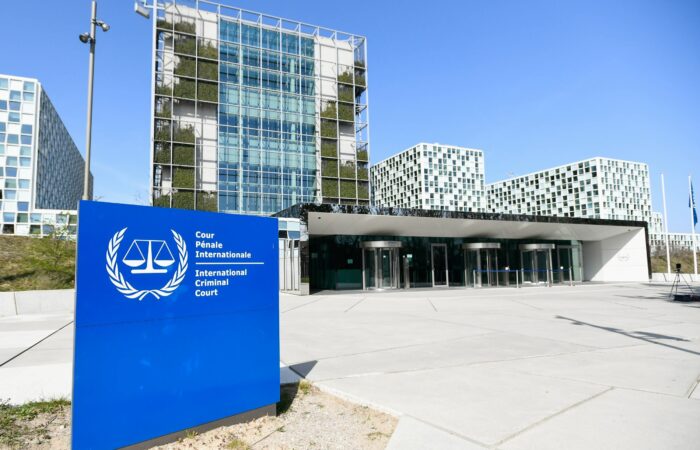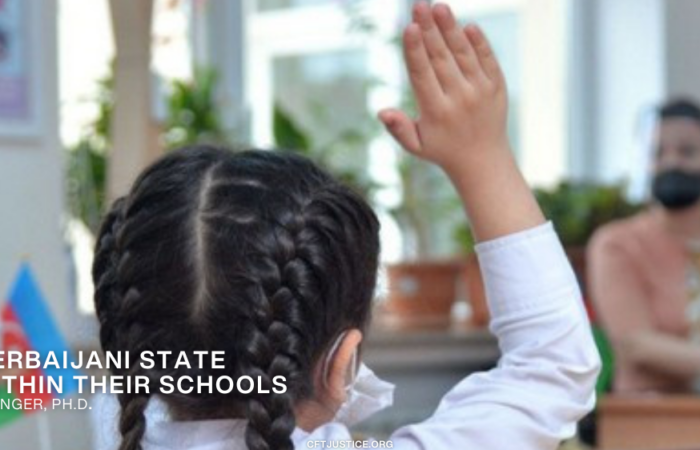On October 11, 2022, the Center for Truth and Justice (CFTJ) submitted a report to the United Nations about Azerbaijan’s use of terrorist mercenaries in the 2020 war in Nagorno-Karabakh. The report urged the UN Working Group on the Use of Mercenaries to investigate Azerbaijan’s use of mercenaries during the Working Group’s upcoming visit to Armenia in early 2023. CFTJ’s report indicates that Azerbaijan has violated its obligations as a state party to the UN Convention on Mercenaries by recruiting, using, financing and training mercenaries during the 2020 war.
The report contains summaries of four detailed accounts from firsthand witnesses who personally encountered mercenaries from Syria, hired by Azerbaijan and Turkey to travel to Azerbaijan and participate in the attack on Nagorno-Karabakh. One witness served as an official translator to two Syrian mercenaries during their interrogation by Armenian authorities following their capture. The witnesses detailed the mercenaries’ accountings of recruitment, travel to Azerbaijan, pay, training, and the explicit order to kill and behead Armenian soldiers and civilians for additional pay. Beheadings were required to be proven through photographs in order to receive the additional compensation of $100 for civilians or $200 for soldiers.
Another witness described being attacked by someone screaming Allahu Akbar, being left for dead, and later captured, detained in Azerbaijan, and tortured by Azerbaijani authorities. Another witness from Nagorno-Karabakh who fought in the 2020 war described encountering mercenaries while fighting. As the witness was fluent in Azerbaijani, he was able to observe that the opposition fighters were not speaking Azerbaijani but rather Arabic (which is not spoken in Azerbaijan). The witness described his surprise of seeing those particular soldiers react with apathy when another soldier was killed, supporting his theory that the soldiers did not know each other and were not part of Azerbaijan’s national forces. A final witness described directly meeting a Syrian mercenary in Jabrayil, who told him that they [the mercenaries from Syria] were lied to about the war and disclosed the pay they received for being proxy fighters.
Based on the firsthand accounts detailed in CFTJ’s report, the mercenaries hired by Azerbaijan and Turkey committed crimes that constitute violations of international humanitarian and human rights law, and Azerbaijan defied its obligations as a state party to the International Convention against the Recruitment, Use, Financing and Training of Mercenaries. During the Nagorno-Karabakh War in 2020, Azerbaijan committed grave violations of international law, including extrajudicial killings, torture, arbitrary detention, and destruction of civilian properties using indiscriminate and internationally banned weapons. Turkey co-perpetrated these crimes by recruiting an estimated 2,580 mercenaries from Syria to fight for Azerbaijan against Armenian nationals. As noted in CFTJ’s report, the UN Working Group has previously expressed concern about Turkey’s recruitment and transfer of Syrian mercenaries to Azerbaijan. The Parliamentary Assembly of the Council of Europe has also condemned Azerbaijan’s use, with Turkey’s assistance, of Syrian mercenaries.
CFTJ’s report urges the UN Working Group to meet with witnesses and mercenaries during their upcoming visit to Armenia, and to then send Azerbaijan and Turkey an allegation letter as well as an urgent appeal. Given that the war of Azerbaijan on Armenia is ongoing, there is cause for serious concern that additional recruitment of mercenaries will recur, says CFTJ.
CFTJ is a US-based nonprofit nongovernmental human rights organization documenting violations of international law via firsthand testimonial evidence. Established in November 2020 as a response to the war in Nagorno-Karabakh, CFTJ has since recorded over 350 testimonies from conflict victims and witnesses, including firsthand accounts detailing the recruitment, financing, and use of mercenaries by Azerbaijan and Turkey.


